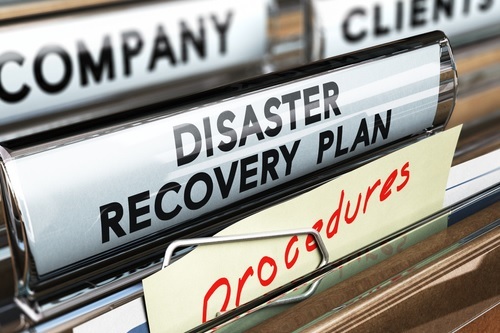
Brexit chaos – motorways at a standstill - Labour splits – Tories split too, for good measure – urgent climate change issues – EU in financial crisis – productivity down, crime up – storms increase in intensity – terrorism – major flooding events – giant radioactive lizards roaming the home counties...
Disasters (especially fictional ones) come in all shapes and sizes, but they all have something in common: none were anticipated by the people most affected and it almost always comes as an unpleasant surprise.
BIBA has recognised this in its 2019 Manifesto, Item 1:
“...smaller businesses find it harder to recover from a shock than larger ones and therefore it is vital that they have a suitable insurance programme and business continuity plans as a safety net.”
A report from the Federation of Small Business revealed that two thirds of small businesses have been negatively impacted by a severe weather event in the past few years, and more than 185,000 business premises are at risk of flooding.
SMEs are more vulnerable, have fewer resources, and are less prepared than large businesses, so need a more local, agile and cheaper solution. Worse, they often tender for business into larger companies, who increasingly require evidence that their supply chain will not be disrupted by a disaster event affecting the tenderer.
Not enough evidence?
- Pool Re launches Terrorism cover for SMEs in 2019
- Regulated businesses MUST show regulators a tested, off-site DR plan on demand
- Unregulated businesses are increasingly being asked for DR plans in tender documents.
Hypothesis
Large companies have always had expensive standby facilities, ready to take over operations should the unexpected occur. These are typically provided by very large DR companies, specialising in recovering City trading floors and other monolithic (typically financial) institutions. The standby capacity from these large providers is therefore clustered typically only around London.
Insurers and brokers have sought a solution to the SME disaster recovery conundrum for years - and some have succeeded. Companies have spotted the gap in the market, not to mention the gap in service: a commercial claim is effectively down to the SME to organise themselves & recover the costs. If the insured is disorganised or has no DR plan, the cost of the claim soars as the BI element increases.
In any case SPEED is the critical factor as a business in distress, unable to communicate with their suppliers, staff and clients immediately after a major disaster event, will be at the mercy of circling competitors. So, the need exists for a fast, reliable emergency disaster recovery service for SMEs, available at a cost which can easily be absorbed into a typical SME premium.
Solution
One company, First Recovery, has been working with insurers who wish to address this gap, improve customer service and differentiate themselves in an increasingly homogeneous AI-driven market environment. Within 24 hours, their service relocates afflicted clients to one of more than 500 standby centres around the UK; IT is installed and internet/email/telecoms/data services reinstated. These actions ensure the client can rapidly communicate via their usual phone number, email address and website. To the outside world, it is as if nothing happened.
Insurers understand the underwriting benefits to the quantum of a BI claim in getting a business back on its feet quickly, which can completely defray the cost of the service. Capacity providers and brokers are also recognising the importance of the FCA's principles around treating customers fairly and adding value beyond price and cover, thus facilitating portfolio transfers and generally gaining business from risk-aware customers, increasing the overall quality of their book.
Tens of thousands of SMEs now purchase policies from A-rated global insurers which include emergency disaster recovery at no extra charge: Travelers attach First Recovery for Office and Combined clients; Allianz for their larger SME portfolio, and Zurich for all UK SME and Mid-Market commercial policyholders. First Recovery suggests further partner announcements will be made soon.
Brokers are on the front line. They may have a book of several thousand SME clients, who will often not be aware there is a low-cost solution to their DR problem, so it is up to brokers to switch them to one of the carriers above. But what if both the broker and client are perfectly happy with their current insurer - even though DR is not included with that carrier’s offering? Happily, a service such as First Recovery can be purchased as a standalone add-on benefit; or, they can attach it to all their commercial SME clients as a differentiating ‘loyalty benefit’.
Conclusion
The insurance market is clearly moving toward providing service solutions for SMEs. MGAs want to show value-added; brokers want to demonstrate their Risk Management prowess; and insurers want to differentiate themselves while offering improved service levels to customers. The announcements from Pool Re and the latest BIBA Manifesto serve as a call to action for us all. To some, offering DR services to SMEs creates a new profit opportunity; to others, it is simply the chance to offer great service.
The industry can and should firmly grasp its responsibility to customers in distress, by helping them get back on their feet as soon as possible. Of course, you can ignore all this...
...but beware the giant lizards. They’ll get you when you least expect it.


Add new comment